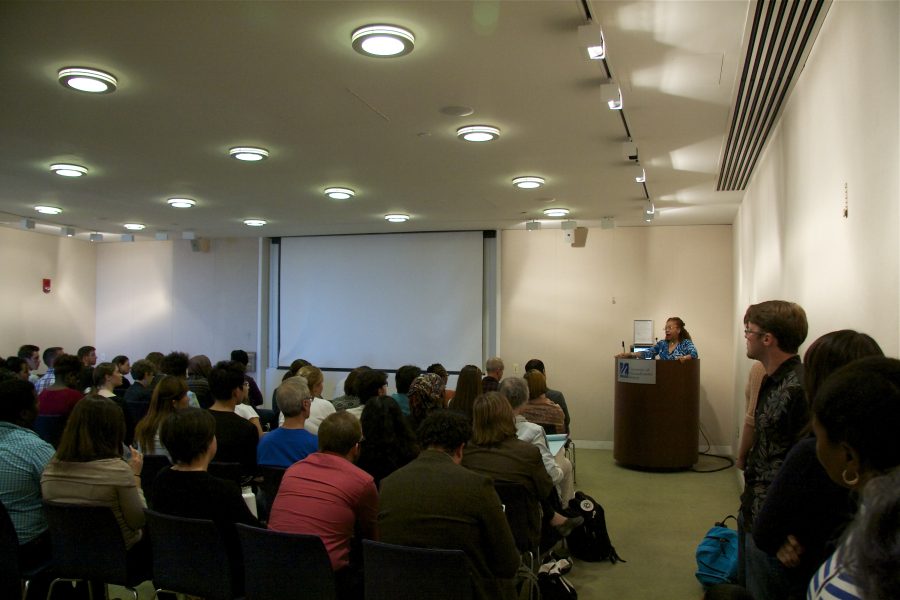Late last month, the Political Science department of the University of Massachusetts Boston presented “Understanding Ferguson,” in which several faculty members gave their insights on the incident involving the shooting of an unarmed black teenager named Michael Brown.
Professor Paul Watanabe of the Political Science department, Lynell Thomas of the American Studies department, and Barbara Lewis of the Trotter Institute took part in the discussion, which was aimed at better understanding the shooting of Brown.
“As a parent of an unarmed black teenage male who just turned 19, I just could not understand the situation,” said Thomas. She said that the incident is something that needs serious legal investigation.
Thomas explained that there is a history of unjustified killings in the United States, and it is a matter that requires a national dialogue and action at the same time. For many years, minorities have been victimized by the misuse of power vested in the authorities.
Thomas explained that her mother grew up at a time where “she had to confront incredibly dehumanizing segregation and systematic violence,” but that she also had to find hope and courage under these circumstances.
Although she wishes this tragic event in Ferguson never happened, she surprised her audience by saying that if it had not, many of us would not even know that such inequality still exists.
“It is not just a rural problem, a southern problem, a regional problem, a black problem, or even a national problem. It is a problem in our democracy and our humanity,” stated Thomas.
She continued explaining how, in some places, people still do not grant to others their basic human and civil rights. At this point, it is about the segregation, about “gaining economic justice about state-sanctioned violence”, and not ignoring the problems that so many people still face.
Thomas expresses that it is not enough to merely vote for a black man to be president, or to favor the Cosby Show. The State must do something to fix the hole in the criminal justice system, the decriminalized racial system, the police force and police brutality, and most of all, the minds of those who still have not accepted the changing world in which we live.
“We need to be teaching kids to appreciate the people in this world, not how to hate and take their selfish anger out on them,” she concluded.
Following Thomas, Barbara Lewis began by saying that according to data received by the FBI in a report written by prize-winning journalist, Margaret Wilkerson, “An African American is killed by a white police officer at least twice a week, so there is definitely regularity in the killing.”
Lewis went on to say that this data is incomplete, because not all states keep record of these killings, and if they do, the information is not always submitted to the FBI.
She explained her frustration with police brutality and how communities should work on stopping it, because “there is no such thing as justifiable killings.” Lewis’ heartfelt speech ended with a vivid description of the many punishments received during the discrimination era; from burning bodies to erratic short films, the audience that evening was given a clear image of the violent and intolerant nature people can display against others.
The 18-year-old Brown was shot and killed by white police officer, Darren Wilson, in Ferguson, Missouri earlier this year.

